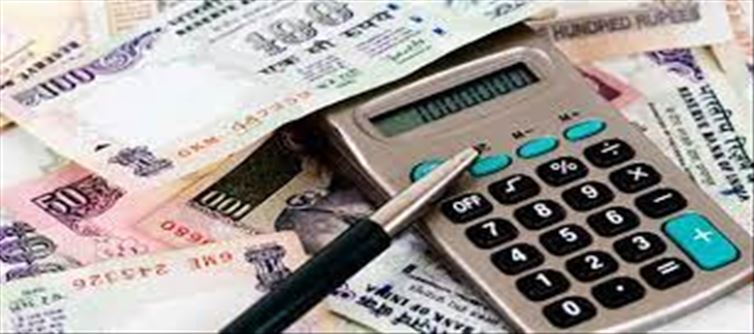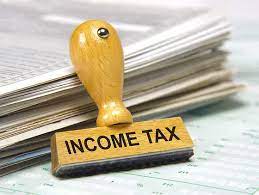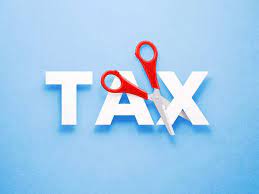
This is the time when your company or employer asks for your investment proofs and other tax-related documents. Based on these documents, your employer will calculate and deduct the remaining income tax of your financial year and pay your monthly salary. After you file your income tax return for a financial year, the final income tax is determined by the Income Tax Department. The I-T department either deducts the tax from your income for the financial year or refunds the tax you have paid. Whether you submit your tax saving documents at your office or at the Income Tax Department, one of the common questions that pop up in your mind is how to save income tax, especially if you have opted for the old tax system. Under Section 87A of the Income Tax Act Rs. 12,500 after tax allowance your salary is Rs. 5 lakhs is out of the tax-deductible limit and this question is very important. In this post, through an expert's calculations, your annual gross salary will be Rs. 12 lakhs, let's know how you can save 100 percent of your tax.
Every salaried individual is taxable according to the tax bracket depending on his total taxable income including other income, i.e. interest, dividends, and rent. When you file your Income Tax Return (ITR), you have to choose between old and new tax regimes. If you have invested in tax saving schemes, the old tax system will give you tax deductions. But before that, when you start your tax-saving journey, one thing that you need to keep in mind is how to invest your money or your taxable income. Deductions should be taken to bring it below 5 lakhs.
 N.A. Aastha Dhovan, Partner, Direct Tax, Shah Associates, said, "Employees should make efficient use of the exemptions available under the IT Act to bring their taxable income below Rs 5,00,000/- so that there is no need to pay tax."
N.A. Aastha Dhovan, Partner, Direct Tax, Shah Associates, said, "Employees should make efficient use of the exemptions available under the IT Act to bring their taxable income below Rs 5,00,000/- so that there is no need to pay tax."List of common deductions available to salaried employees opting for the old tax system
1. A standard deduction of Rs. 50,000 is a huge tax deduction under Section 16 of the Income Tax Act.
2. Under Section 80C of the IT Act, Payments for life insurance premiums, provident fund, national savings certificate, home loan principal, children's school fees, etc. up to Rs.1,50,000.
3. Additional tax exemption on investments in the National Pension Scheme notified by the central government under Section 80CCD (1B) of the IT Act is Rs. 50,000.
 4. Tax deduction under section 80D of IT Act for the amount paid for medical insurance premium for self, wife, and children is Rs. 25,000 up. Also, a tax deduction of Rs 50,000 is available on medical insurance premiums paid to senior citizens.
4. Tax deduction under section 80D of IT Act for the amount paid for medical insurance premium for self, wife, and children is Rs. 25,000 up. Also, a tax deduction of Rs 50,000 is available on medical insurance premiums paid to senior citizens.5. Tax deduction up to Rs.2,00,000 per annum on interest amount on home loan under Section 24(b) of IT Act.
Apart from the above, other tax deductions like HRA, LTA, Child education Allowance, Food Allowance, and mobile Bills Reimbursement are also available to the employees opting for the old tax system depending on the elements of their salary structure.
How to reduce income tax on 12 lakh salary
Your annual gross salary is Rs. 12 lakhs, how can you reduce your income tax to zero? For that, you can ask your company's HR department to structure your salary in a tax-friendly manner. At the same time, you have to make investments, get HRA and Leave Travel Allowance (LTA), get telephone bill reimbursement, pay health insurance premiums, and take standard deductions and tax credits to bring your deductible income up to Rs. 5,00,000 or less.
Your total salary is Rs. 12 lakhs, you can structure your HRA as Rs.3.60 lakhs, your LDA as Rs.10,000, and your phone bill repayments as Rs.6,000. Out of this gross salary, you will get a standard deduction of Rs.50,000 under Section 16. You can claim a deduction of Rs 2500 for business tax; the HRA amount under Section 10 (13A) is Rs. 3.60 lakhs and LTA under Section 10 (5) Rs. 10,000 can also be deducted.
With these deductions, your taxable salary will come down to Rs.7,71,500.
If you have invested in LIC, PPF, EPF or paid your child's education fees, you can claim a further deduction of Rs 1.50 lakh under Section 80C.
Those who have invested in the Tier-1 plan of the National Pension Scheme are eligible for an additional tax deduction of Rs.50,000 under Section 80CCD.
After these two deductions, your taxable income is Rs. 5,71,500. Section 80D allows you to claim tax deductions on premiums paid on health insurance policies. You can claim Rs 25,000 for health insurance premium for yourself, your spouse or your children. A further Rs 50,000 deduction can be availed on the premium paid on your senior citizen parent's health policies.
If you deduct Rs.75,000, your taxable income will come down to Rs.4,96,500.
On that income, you don't have to pay any tax.




 click and follow Indiaherald WhatsApp channel
click and follow Indiaherald WhatsApp channel